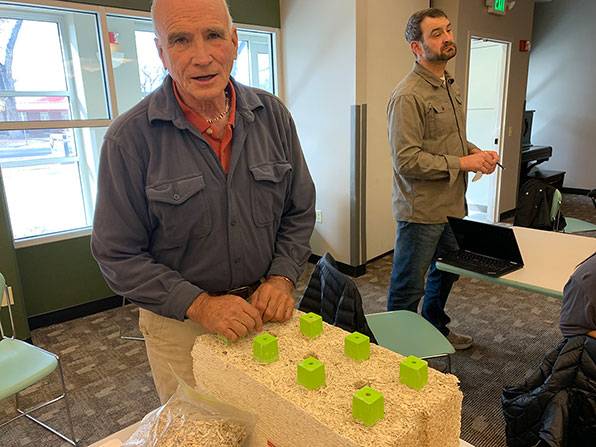Hemp farmers and businesses looking to get into the supply chain of hemp production gathered on the campus of Adams State University Wednesday to engage the state of Colorado in its design of a regulatory framework for the emerging industry.
The Colorado Department of Agriculture is partnering with leading the state, local, and tribal agencies, as well as industry experts in cultivation, testing, research, processing, finance and economics to establish a statewide initiative known as the Colorado Hemp Advancement and Management Plan (CHAMP).
Adams State, as part of its effort to support the regional opportunities in the hemp industry, distributed a needs assessment survey at the meeting to get input on strategic ways Adams State can participate in supporting the hemp industry of the San Luis Valley and southern Colorado.
Adams State President Cheryl D. Lovell said hosting the CHAMP meeting was an important step in Adams State’s efforts to convene and bring together the agricultural community of the San Luis Valley to assist it in areas like developing a hemp economy.

Attendees included Jim Milski, who displayed a building block made from hemp to show the many industrial uses of the plant. Other attendees included farmers in and outside of the San Luis Valley who are growing hemp either for CDB oil production or other industrial uses.
“In keeping with Colorado’s position as a leader in the advancement of hemp, we are committed to seeking valuable input offered by voices in the San Luis Valley and partnering with leading academic institutions, including Adam State University, to explore the potential of this high value crop,” said Colorado Commissioner of Agriculture Kate Greenberg.
The CHAMP Initiative is a statewide effort to develop a Colorado blueprint that will outline a regulatory framework and identify the economic opportunities needed to build a robust and sustainable hemp industry across the state.
Colorado became a national leader in industrial hemp cultivation and production when it launched one of the first successful pilot hemp programs in the United States five years ago. The recent passage of the 2018 Agricultural Improvement Act, commonly called the Farm Bill, requires each state department of agriculture to submit a state management plan to the USDA, outlining how various aspects of hemp cultivation and processing will be managed within the state.



